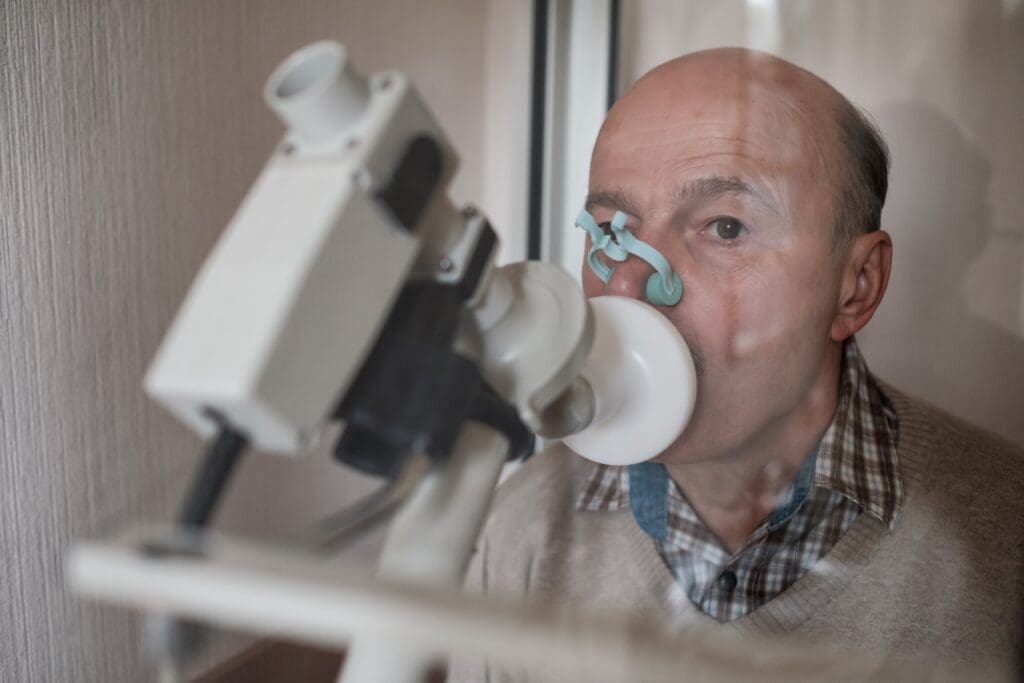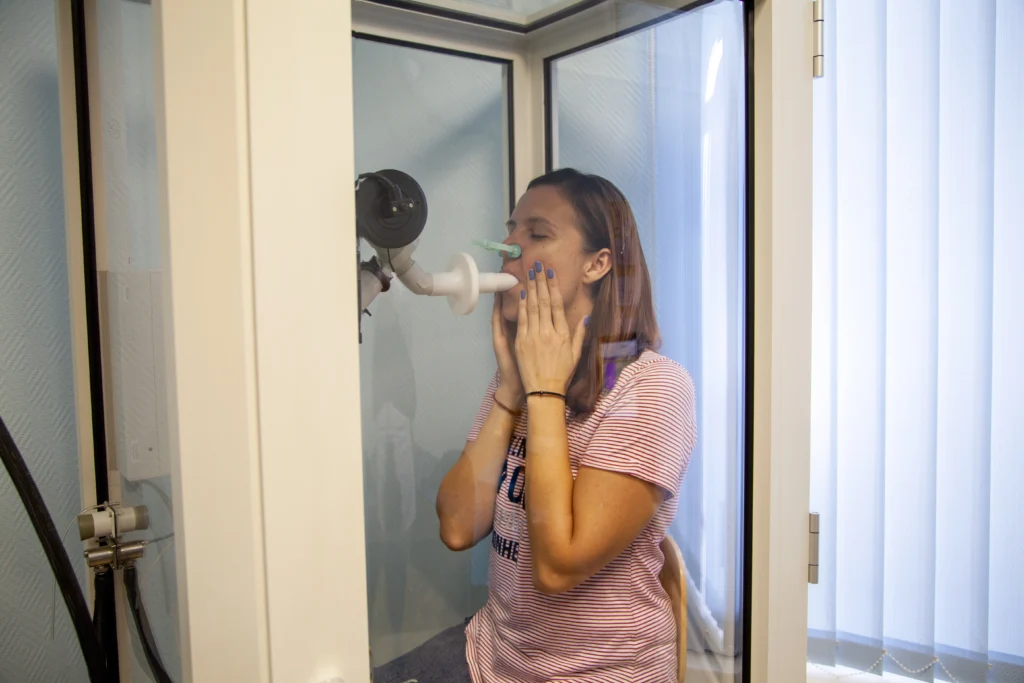The average human takes 20,000 breaths per day. Breathing is something many people might take for granted, but for patients with a chronic lung condition, proper diagnosis and treatment are key steps toward breathing easier.
Spirometry – also known as a pulmonary function test (PFT) or lung function test – is one of the most accurate and simplest ways to test lung functioning. From the Latin word ‘respirare’ meaning ‘breath,’ this simple test that measures how much air a patient can breathe into their lungs and how quickly they can exhale.
Spirometry is used to diagnose asthma, COPD (chronic obstructive pulmonary disease), and a range of other lung conditions. For patients who have already been diagnosed with a chronic lung condition, doctors also use spirometry to test how effectively a patient’s current medication or treatment is managing their condition.
Is a pulmonary function test right for me?
Pulmonary function testing is commonly recommended for patients who have a range of risk factors:
-
- Patients with respiratory symptoms – Frequent difficulty breathing, shortness
of breath, decreased ability to exercise, persistent cough and pain while breathing could signal other health concerns. If your doctor suspects your symptoms may be caused by a chronic lung condition, they may conduct a pulmonary function test.
- Patients with respiratory symptoms – Frequent difficulty breathing, shortness
-
- Patients with a lung condition – Patients who have been diagnosed with a chronic lung condition such as asthma, COPD, chronic bronchitis, emphysema, and pulmonary fibrosis should have regular lung tests to monitor the progression of their illness and the effectiveness of their treatment.
-
- COPD patients – Spirometry is recommended for patients who have been diagnosed with COPD and have persistent symptoms such as coughing, increased sputum production, and shortness of breath after physical activity.
-
- Smokers and former smokers – Patients over 40 who currently smoke or used to smoke should consider taking a quick test to screen for symptoms of COPD. It’s never too late to butt out and for patients who want to quit smoking but don’t know how, help is available.
Talk to your doctor
If you suffer from an existing lung condition, think you might have a lung condition, or are at risk of developing one, it could be time to talk to your doctor about regular spirometric testing.
Effective diagnosis and treatment of lung conditions is an important part of managing symptoms and improving quality of life. Proper treatment can help decrease flare-ups and slow the progression of lung conditions.
Patients play a key role in ensuring their doctor knows about all their health concerns. It’s important that you advocate for your health and raise health concerns with your doctor as they arise. Just like monitoring any other symptom or health condition, consider talking with your doctor and making regular spirometric testing part of your care plan.










